Deforestation and land use conversion can result in the significant loss of forests and biodiversity. Around 90% of tropical forest loss, particularly in South America and Africa, is due to the expansion of agricultural activities. The complex relationship between agriculture and deforestation highlights the urgent need for sustainable practices that balance the need for food production with environmental conservation and socioeconomical development.
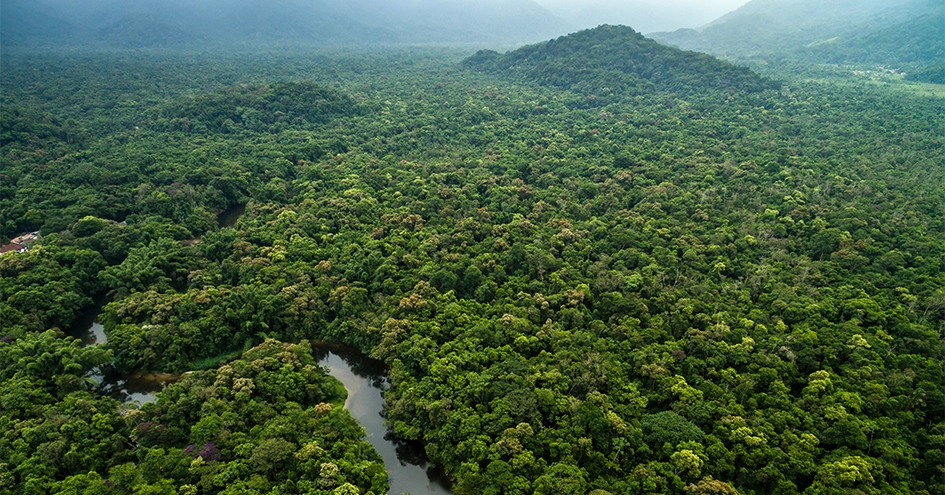
As food retailers, we know how important agricultural commodities are to our supply chains and the importance of High Conservation Value (HCV) forests and terrestrial ecosystems in fighting climate change, because of their capacity to sequester carbon from the atmosphere and the biodiversity they shelter. It is for this reason that we joined The Consumer Goods Forum Forest Positive Coalition of Action (FP CoA) and made ambitious commitments relating to the management of the main commodities linked to deforestation in our Private Brands and perishable products and packaging that contain palm oil, paper/wood, soy and beef. This coalition encourages its members to take collective and individual action to eliminate deforestation and forest conversion directly associated with the supply chains of these four commodities and to support the sustainable management, conservation and restoration of forests while respecting human rights.
Commitment to fighting deforestation recognised in 2024
Once more, we were awarded with the leadership level (‘A-’) in the CDP Forests Programme for our management of commodities associated with deforestation, assessed by CDP (Disclosure Insight Action): palm oil, soy, beef and paper/wood.
This score, which we obtained in 2019, 2020, 2022, 2023 and 2024, attests to the robustness and consistency of our commitments and actions to fight deforestation.
Our commitment is to ensure that, by the end of 2025, the palm oil, soy, paper/wood and beef used in our Private Brand and perishable products are deforestation- and conversion-free (DCF), particularly the commodities used as a direct ingredient in our chains.
We recognise that the use of these commodities in complex chains, such as soy used in animal feed or palm oil derivatives, poses additional challenges, which is why the food distribution sector encourages the involvement of the different economic actors along the supply chain to address them together. To monitor our progress and identify opportunities for improvement, we map the presence of ingredients linked to deforestation in our Private Brand products and perishables, collecting information on their origin and sustainability certification from suppliers, as well as their respective policies for fighting deforestation.
|
|
Total quantity (tonnes) |
||||||||||
|---|---|---|---|---|---|---|---|---|---|---|---|---|
Commodity |
|
2024 |
|
2023 |
|
Δ 2024/2023 |
||||||
Palm oil |
|
77,667 |
|
67,270 |
|
15% |
||||||
Soy |
|
513,486 |
|
499,206 |
|
3% |
||||||
Soy (direct) |
|
21,061 |
|
23,318 |
|
-10% |
||||||
Soy (indirect)1 |
|
492,425 |
|
475,888 |
|
3% |
||||||
Paper and timber |
|
212,152 |
|
200,052 |
|
6% |
||||||
Paper and wood (products)2 |
|
170,751 |
|
163,622 |
|
4% |
||||||
Paper and wood (packaging)2 |
|
41,401 |
|
36,431 |
|
14% |
||||||
Beef |
|
40,337 |
|
41,094 |
|
-2% |
||||||
|
||||||||||||
Palm oil
As in previous years, we have been using increasingly more palm oil in our Private Brand products, particularly at Ara, where around 90% of this ingredient is used in vegetable cooking oils, a very important product for the Colombian consumer.
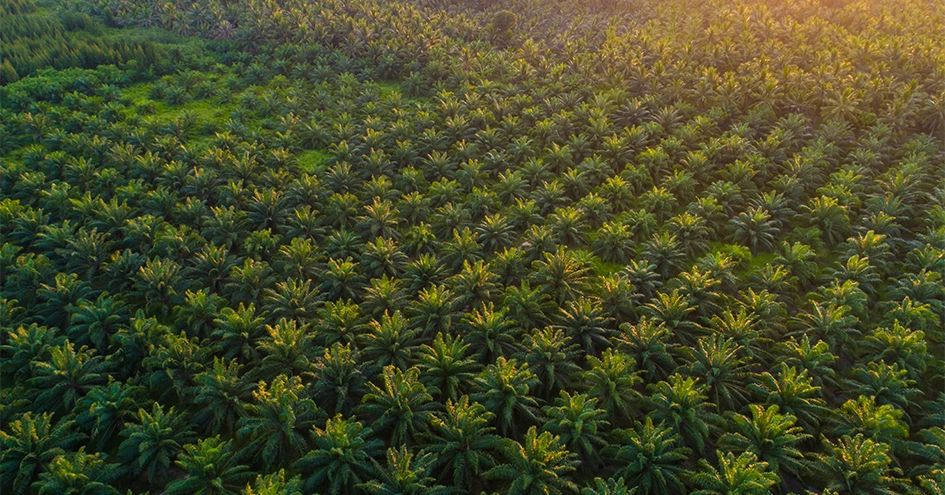
In 2024, all of the palm oil used in our Private Brands and perishables in Poland and Portugal was RSPO (Roundtable on Sustainable Palm Oil) certified, with the vast majority certified according to the “Mass Balance” and “Segregated” schemes1. In Portugal and in Poland, the use of palm oil in Private Brand products has decreased due to the reformulation of some products.
RSPO Certification Schemes in Poland and Portugal (2024)
Although Colombia is one of the world’s top five palm oil producers, the country’s RSPO certification rate is low. This reality, combined with our strategy to encourage local sourcing in the countries where we have operations, makes it difficult to increase RSPO certification for palm oil produced in Colombia. Since 2021, Ara has been part of the “Acuerdo de Voluntades para la Deforestación Cero en la Cadena de Aceite de Palma en Colombia” (Voluntary Agreement for Zero Deforestation in the Palm Oil Chain in Colombia), with the aim of ensuring that the palm oil used in our Private Brand and perishable products does not contribute to deforestation. The Agreement, promoted by the Colombian government, is supported by several civil society organisations, including RSPO, Proforest, Tropical Forest Alliance, and the WWF. The initiative focuses on actions ranging from the traceability of palm oil (down to farm level), ensuring that this ingredient is not associated with deforestation, and also aims at ensuring that imported palm oil has sustainability certification, such as RSPO certification.
In 2024, approximately 75% (18 p.p. less than in 2023) of the palm oil used in Ara’s Private Brand and perishable products originated in Colombia, 66% of which was RSPO certified (54 p.p. more than in 2023). The reduction in palm oil from Colombia was due to the greater materiality (20%) of this ingredient originating from Ecuador in Ara’s assortment.
In 2024, we were able to trace the origin of 95% (4 p.p. more than in 2023) of Colombian palm oil used in Private Brand and perishable products back to the area of the farm where it was produced. Based on this information, we confirmed that the palm oil originated from the departments of Norte de Santander, Cesar, Magdalena, Meta and Casanare, located in three of the country’s four palm oil producing areas (Central Zone, Eastern Zone and Northern Zone) and from 25 (out of 70) processing plants operating in Colombia. However, only 0.75% of the deforestation identified by public authorities in 2021 was linked to palm oil2. The combination of traceability levels, increased RSPO certification, and the low rate of deforestation associated with palm oil in Colombia validates our DCF strategy for this commodity in this country.
Of the around 25% of the palm oil used in Ara’s Private Brand and perishable products originated in Colombia, 59% was RSPO certified (39 p.p. less than in 2023). Due to the already mentioned increase in consumption of palm oil from Ecuador, Ara’s main suppliers have been unable to secure RSPO certification for this origin. In 2025, we will work with suppliers to increase the RSPO certification rate of imported palm oil, with a commitment to ensure that it is not associated with deforestation or the conversion of HCV.
Soy
In 2024, only 4% of total consumption corresponded to soy used as an ingredient (direct soy), specifically in vegetable oils and drinks. The 10% decrease in direct soy consumption is due to reformulations of the composition of vegetable cooking oils containing soy in Ara’s Private Brand products.
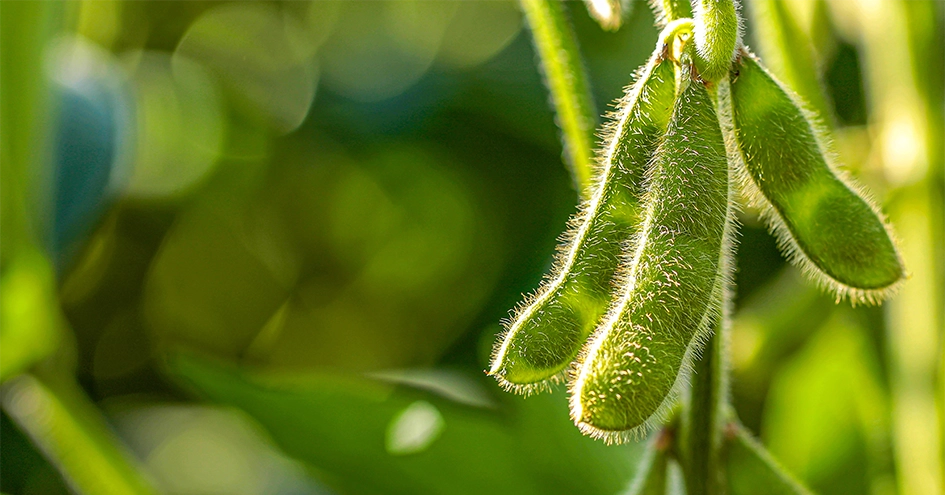
Indirect soy, used in animal feed, accounts for more than 95% of total soy used for our Private Brand and perishable products (tiers 2 to 4b3). Most of the soy in our supply chain (80%) is associated with specialised perishables in the meat and aquaculture fish categories (tier 2) and with non-specialised perishables, such as eggs and dairy products (tier 3). The remaining 16% is associated with processed foods that contain animal-origin ingredients (soy-fed), such as ready meals and sausages.
Approximately 57% of soy was associated with feeding poultry for meat (4 p.p. less than in 2023), 18% with feeding pigs (4 p.p. more than in 2023) and 10% with egg production (1 p.p. less than in 2023).
Soy footprint by tier (2024)
Soy footprint by ingredient (2024)
We maintained our commitment to tracing soy supply and managed to trace the origin, at least to the country of production, of 95% of the total soy in our supply chains (2 p.p. more than in 2023). We were unable to determine the origin of 5% of soy. The progress in soy traceability levels reflects the commitment and joint effort of our suppliers to increase the traceability of their own supply chains. This work with our suppliers will continue in 2025, with a special focus on poultry, pork and eggs, due to their importance in our supply chain.
Around 64% (6 p.p. less than in 2023) of the soy used in Private Brand and perishable products, in particular indirect soy, comes from countries at risk of deforestation4, of which 17% (7 p.p. more than in 2023) had sustainability certification5, such as Round Table on Responsible Soy (RTRS) or ProTerra certification.
Paper and timber
In 2024, higher demand for recycled fibres has created constraints on access to them, leading to a 6% increase on our use of virgin paper and wood fibres in Private Brand and perishable products.
Around 90% of the virgin fibres used in our Private Brand products and packaging had sustainability certification (FSC®, PEFC or SFI), in line with our goal of ensuring the certification of 100% Private Brand products and packaging by 2030.
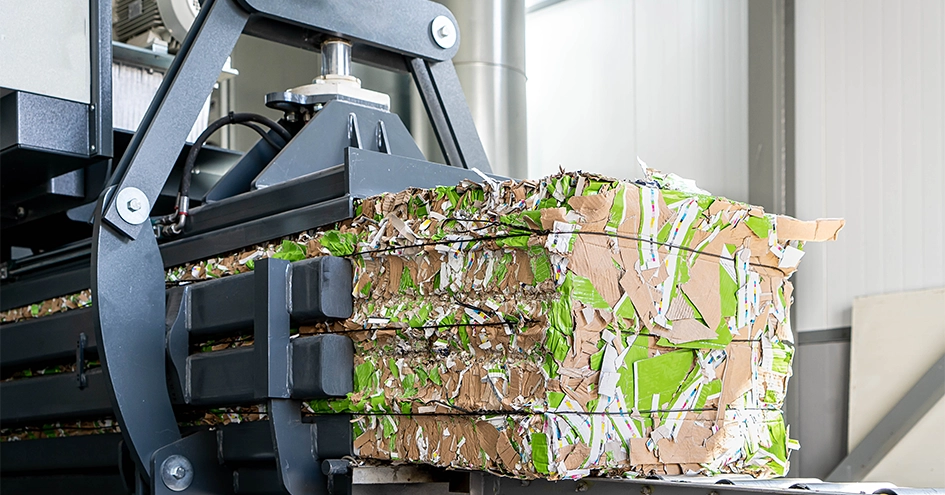
We were able to trace the origin of around 90% of the virgin fibres used, at least, to country level. This analysis showed that around 16% (10 p.p. more than in 2023) of all virgin paper and wood fibres in products and packaging come from countries with a non-negligible or unknown risk of deforestation. We seek to mitigate this risk by incorporating commodities with FSC®, PEFC or SFI certification, which accounted for 85% of total virgin fibres used that originated from countries with a non-negligible or unknown risk of deforestation.
Paper and timber products
Use of virgin paper and wood fibres in Private Brand products increased in 2023, due to the launch of new products and increased sales, particularly at Biedronka.
In 2024, we were able to trace all virgin fibres back to the country of origin and found that 6% are from countries with a non-negligible risk of deforestation6, of which 79% come from sustainably managed forests, as they are FSC®, PEFC or SFI certified.
Paper and timber packaging
In the case of paper and wood used in packaging, about 80% of the fibres are recycled.
As regards the remaining 20%, which corresponds to virgin fibres, we found that around 58% are from countries with a non-negligible or unknown risk of deforestation. Of these, 88% is FSC® or SFI certified.
As a food retailer, this is a complex supply chain for us, as we do not purchase packaging directly, which makes the traceability of the virgin fibres used in packaging very difficult. Nevertheless, we will continue to work with our suppliers to increase the traceability of virgin paper and wood fibres used.
Beef
As in the previous year, in 2024 we were able to map and trace all the beef used in our Private Brand and perishable products to at least the country of origin. Based on this work, we concluded that 0.4% of total beef was sourced from Brazil, a country associated with deforestation risk in cattle production7. Despite the reduced exposure we have for this ingredient, we continue to participate in the beef working group within the framework of the CGF’s Forest Positive Coalition of Action. We are committed to integrating, together with our suppliers, more sustainable production practices in order to create synergies and increase information sharing between our direct suppliers and the meatpackers of non-negligible risk countries.
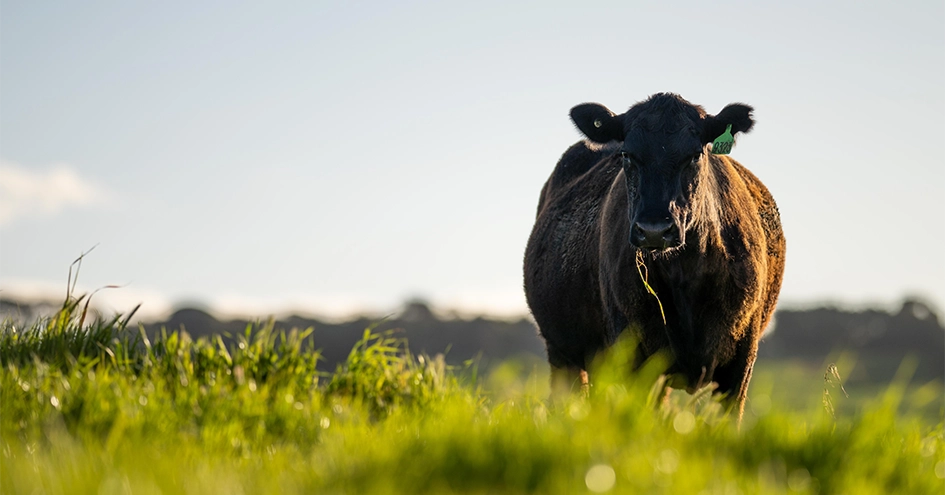
In 2024, we continued to invest in multi-stakeholder initiatives aimed at supporting the preservation and regeneration of ecosystems, in line with the 10 principles defined by the FP CoA8.
Sustainable landscapes in Mato Grosso (Brazil)
In line with the CGF’s FP CoA objectives, in 2024 we continued to financially support the project in Mato Grosso, the Brazilian state with the highest agricultural production, in collaboration with the Amazon Environmental Research Institute (IPAM), Nestlé and Sainsbury’s. This initiative follows the 10 principles established by the Coalition and enabled, in 2024, the development of a local governance model in another two municipalities, Diamantino and Alto do Paraguai, and the consolidation of the model in the municipalities of Campos de Júlio, Campo Novo de Parecis, Sapezal, and Tangará da Serra.
Significant progress has been made in several areas, including the start of construction of a seed nursery to help restore degraded areas. This initiative is being carried out with the aim of promoting agroforestry systems that optimise land use by balancing ecosystem conservation with agricultural production.
RTRS certification was secured for soy production on some farms and regenerative agriculture techniques have also been implemented, promoting carbon sequestration, improving soil fertility and reducing the need to use chemical products.
In terms of social safeguards, of note is the development of a human rights guide for working with indigenous peoples and local communities, aimed at promoting respect for cultural and social specificities in the processes of restoring degraded areas and soy production.
Also noteworthy is the review of Tangará da Serra’s municipal legislation on payments for ecosystem services, which expands payment options and prioritises the efforts made by farmers to maintain the most critical watersheds.
The progress made thus far underscores the success of collaborative participatory governance, technical innovation and community engagement strategies.
1 Information about these certification schemes is available on the RSPO website.
2 Data disclosed in the analysis of the level of deforestation linked to palm oil production by IDEAM (2023) – Instituto de Hidrología Meterelogía y Estudios Ambientales and the Colombian Ministry of the Environment.
3 The five tiers of soy quantification in the supply chain are taken into account, in accordance with the CGF’s “Calculation guidelines for the measurement of embedded soy usage in consumer goods businesses” methodology, available at here.
4 In 2024, the FP CoA revised the list of countries considered as having a non-negligible risk of deforestation associated with agricultural soy production. They are Argentina, Brazil and Paraguay, with Bolivia and Uruguay now removed from the list.
5 In 2024, the FP CoA updated its list of recommended DCF certification schemes and Voluntary Sustainability Standards (VSS). More detailed information is available here: Soy DCF Methodology
6 The countries considered as having a non-negligible risk of deforestation associated with the agricultural production of paper and wood correspond to those defined in the CGF guidelines (Argentina, Indonesia, Malaysia, United States of America and Vietnam).
7 The FP CoA is currently reviewing the list of countries considered as having a non-negligible deforestation risk associated with cattle production. According to the preliminary version, these origins would represent around 3% of total beef used in our Private Brand and perishable products.
8 For more detailed information, see our website.
